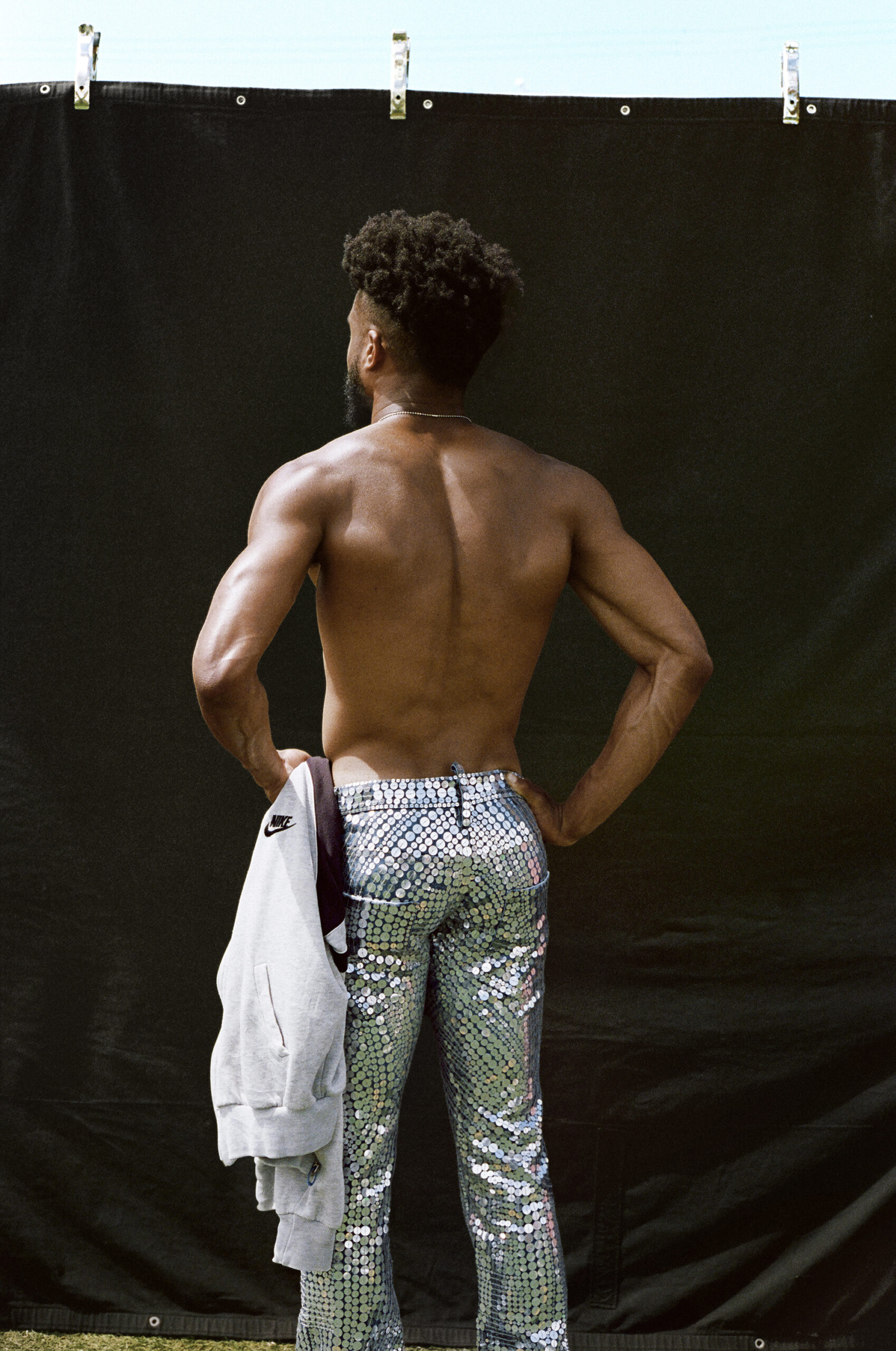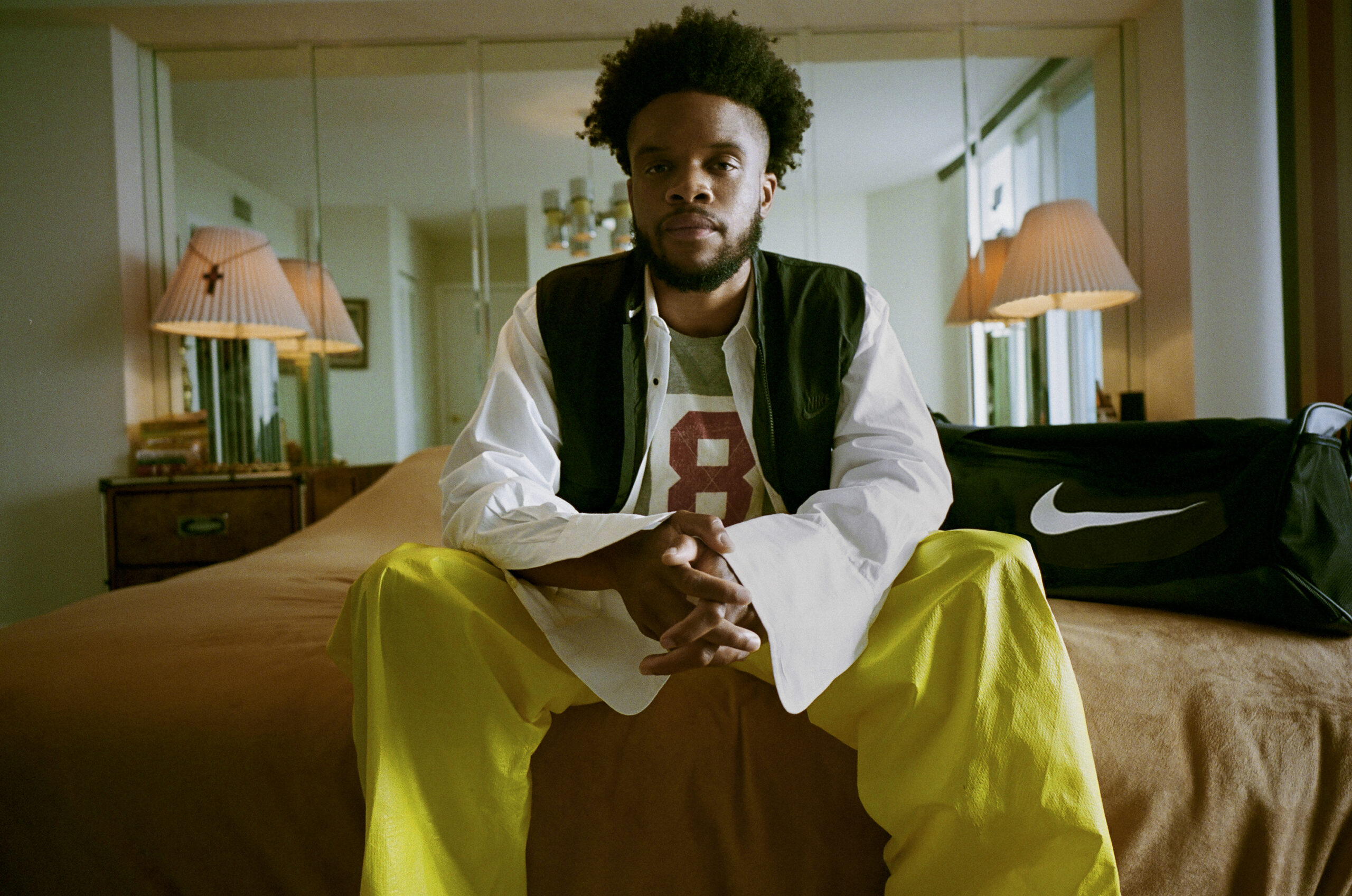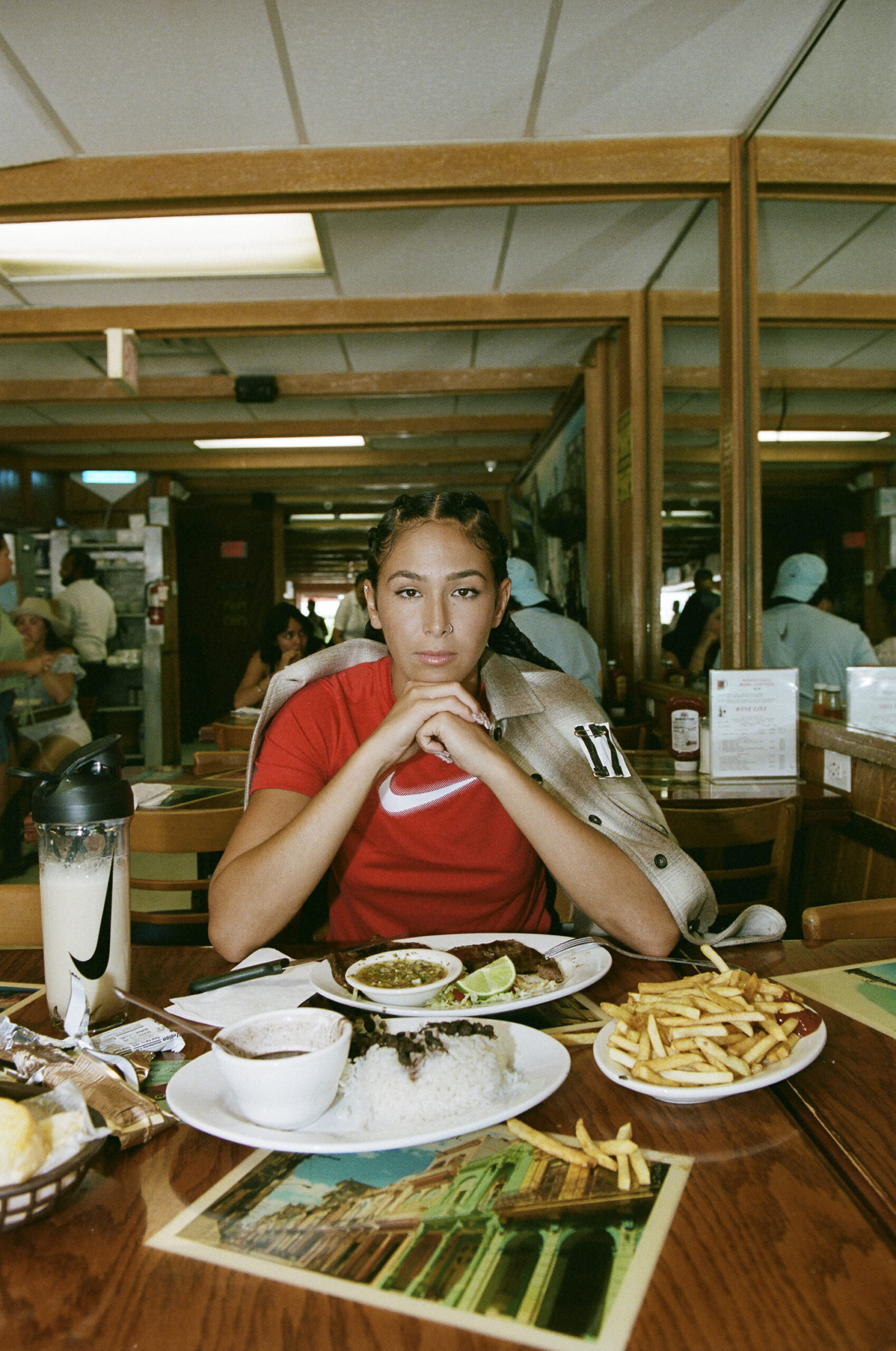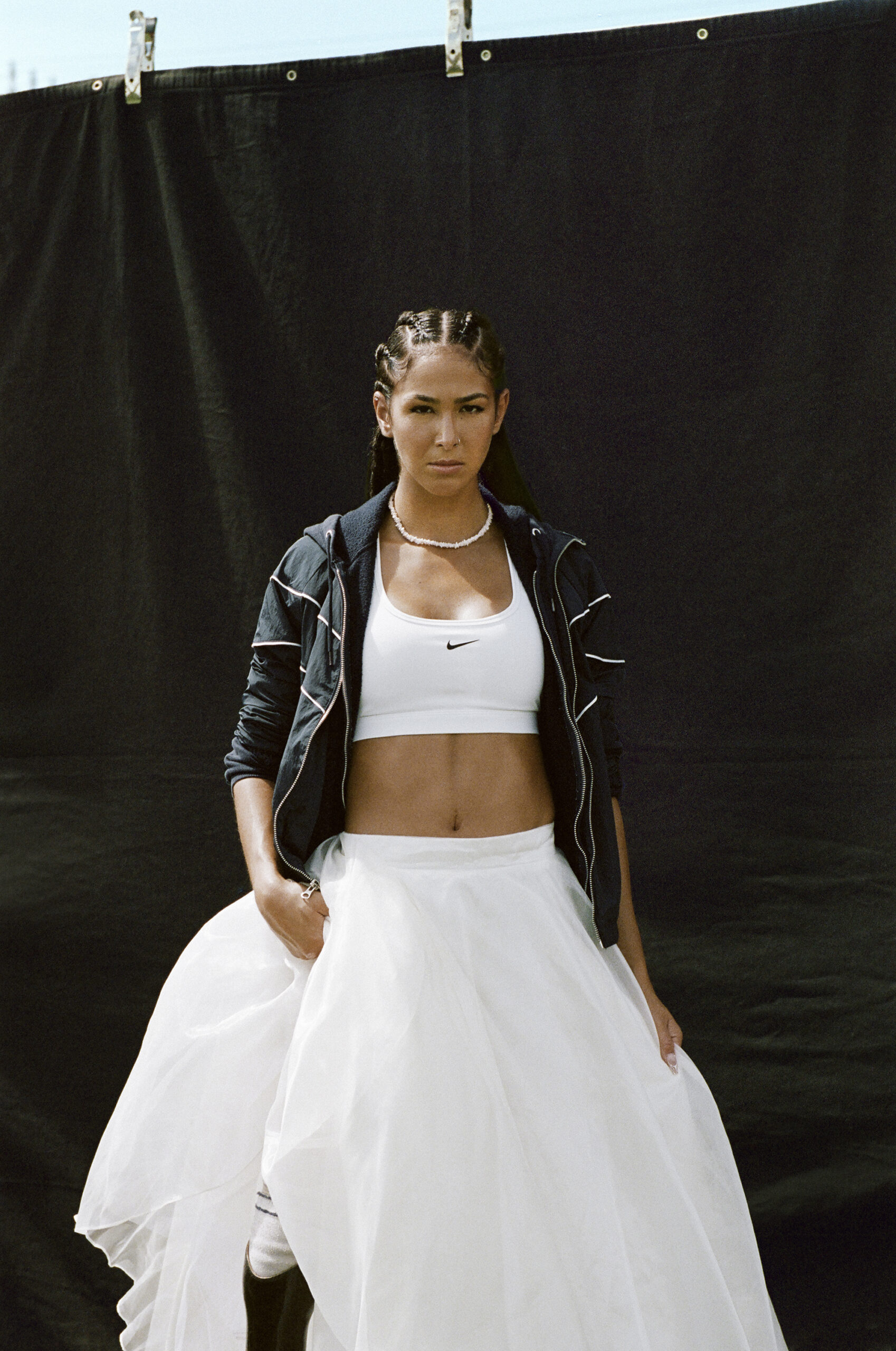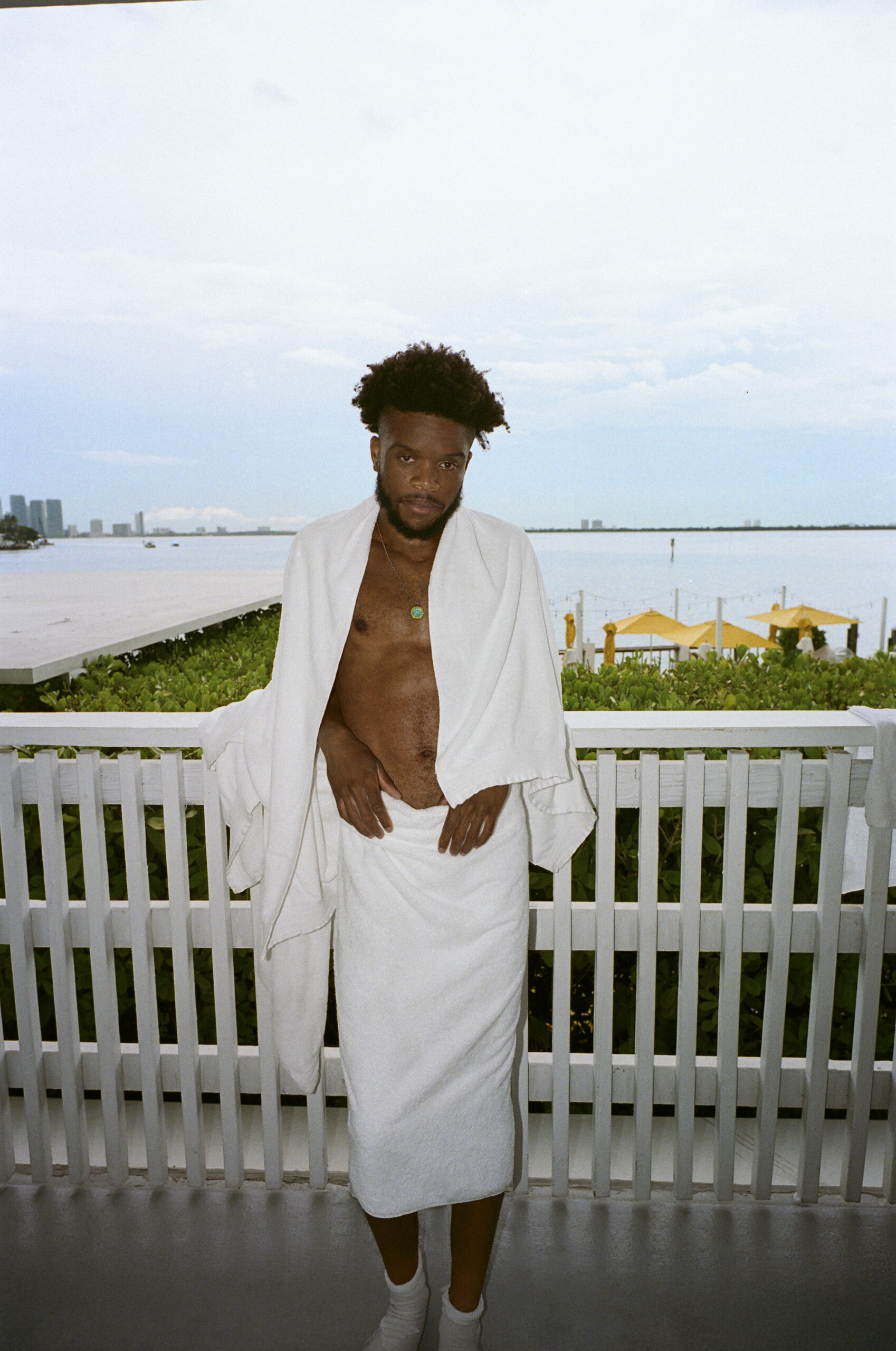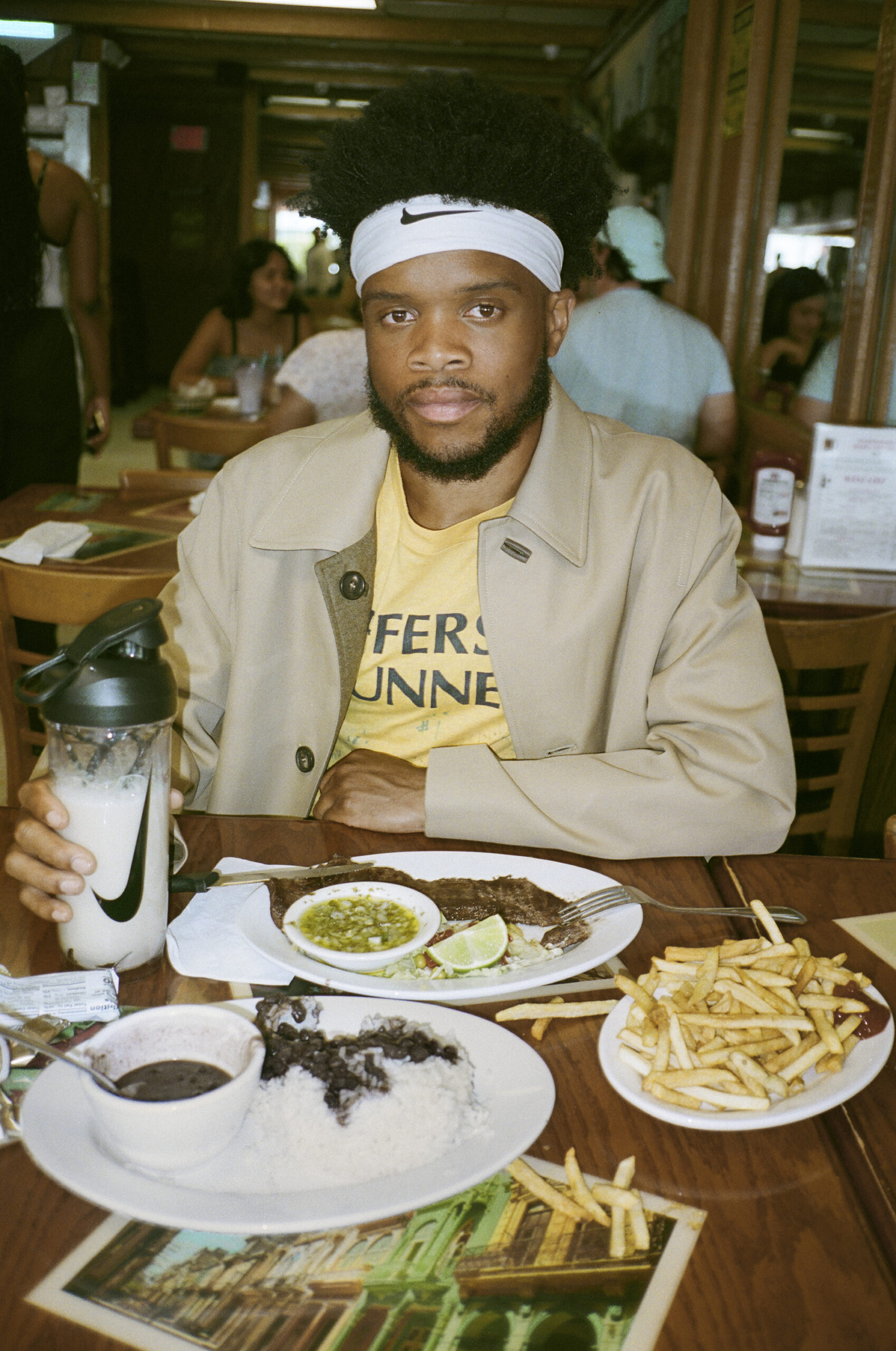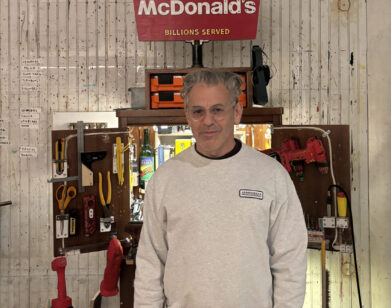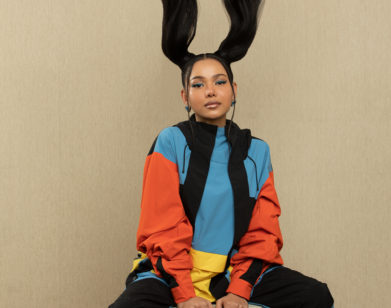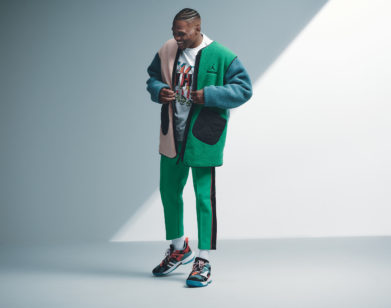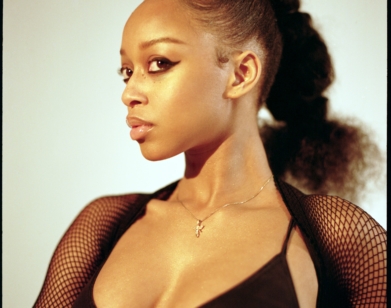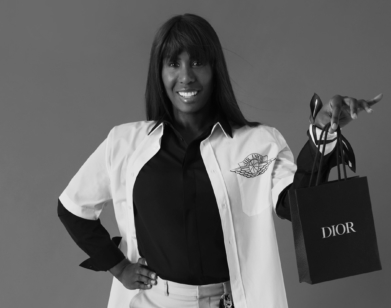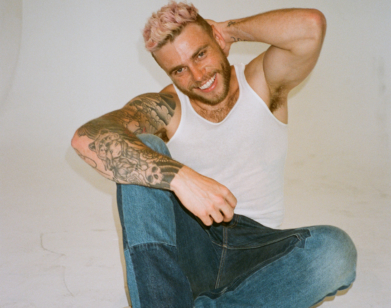SPORTS
Noah Malone and Beatriz Hatz Share Their Paralympic Dreams With Carl Lewis
Before they compete at the 17th edition of the Summer Paralympics in Paris, Nike athletes Noah Malone and Beatriz Hatz connected with track and field legend Carl Lewis to talk about breaking barriers, defying the odds, and winning gold.
———
CARL LEWIS: I’m glad to have you both here. For the last two Olympics, 2016 had Zika, and then of course 2021 had COVID. So how excited are you guys just to have the Olympic Games again?
BEATRIZ HATZ: I’m really excited, because Tokyo was during COVID and there was no audience and nobody was really allowed to watch. The stadium was kind of empty, and the vibes are different when it’s not packed. So I’m excited this time around to have my family, my mom and dad, and my brothers there. That’s a huge deal for me, because they missed my first Paralympic games.
NOAH MALONE: Yeah, like what B. said, the family aspect will be one of the biggest things for me, because I’m going to have probably eight members of my family that’ll actually be in Paris. That’s what really gets me going and the motivating factor for me. So to have an actual crowd, along with my family, will be the icing on the cake.
LEWIS: Noah, let me ask you a question. What was it like competing in college and transitioning to post-collegiate competition?
MALONE: It was definitely tough at first. I was at Indiana State for about three years, and then, right before indoor in my fourth year, I made the transition over to Chula Vista [the site of the United States Olympic Training Center]. And you know how it is—the first three years you start your preseason in August, and it ends hopefully at Nationals in around June. I started training in January, and I was just confused at first. In school, I was running a certain time, but then this past April, I’m not running nearly as fast, and I’m having to come to terms that I’m on a different timeline, on a different schedule, different training, different environments. This is a different year. I’m not training for a conference or Nationals, I’m training for September for the games. So that was probably the hardest transition mentally, to understand that there are two different worlds, but it’s slowly coming together.
LEWIS: Well, I was a college coach. And working with people your age, I saw kids go through the transition like, “I’m afraid,” but as long as you’re ready when the trials come around and the games come around, you’ll be fine. You guys are both in the same events—you’re sprinters, you’re jumpers. Beatriz, I’ll start with you. How did you end up in the long jump pit?
HATZ: I started long jump in high school, and this was back when I didn’t even have a running or jumping prosthetic, so I was just kind of winging it in the long jump with the walking prosthetic. Eventually, for my first Junior World Championships, they told me that they wanted me to jump off my prosthetic. So I did, and I realized, “Oh, this is probably the better way to do it.” And when I switched over to training with Coach [Kris] Mack—this man knows exactly what he’s doing. He was training me to get better in the long jump, and now it’s one of my favorite events.
LEWIS: As a long jumper, I ask you this question: What’s the most challenging part? The approach, leaving the board, or getting in the air?
HATZ: Honestly, for me, it’s probably just the takeoff. My runway is really good. I have very good rhythm, I bring a lot of speed, but I need to be able to put my foot down and drive my knee, and have my arms come with it. I have a pretty bad habit of pushing both my arms in and going straight into my landing, when I need to be more patient.
LEWIS: Well, if you ever want any advice, just give me a call. I know a little bit about that, and what you said doesn’t sound different from every jumper I know.
HATZ: Absolutely.
LEWIS: Noah, being a sprinter, what’s the challenge for you? I know that sprinting doesn’t have as much complexity.
MALONE: It’s the mental part, because practice is about doing it over and over until you get it right. With the 100, for example, the start can be so technical, and that’s my worst part of the race. I can get frustrated or discouraged sometimes. If my low heel recovery is not low enough, or I’m not swinging my arms wide enough out the blocks, it’s little things like that. If you can take the time to visualize what you’re supposed to do during the race, it’ll come. But it really is a mental battle, just as much as physical. It takes practice and practice, and reps and reps, and that’s what Coach Mack and I have been doing.
LEWIS: Who has been the most impactful person in your athletic journey to get you to where you are?
HATZ: The most impactful for me is definitely Coach Mack. I have worked with a lot of different coaches, and everybody’s got a different coaching style and a different personality, so finding somebody you can mesh with and trust is not the easiest task. But I’ve been working with Coach Mack for a while, and he’s made everything—
LEWIS: I hope that’s not me freezing. It’s someone else—
HATZ: Yeah, let’s give it a second.
MALONE: Beatriz, you met Carl at JDI [Just Do It Day, a Nike event]?
HATZ: I actually met him prior to JDI, when I was 16 at the Mt. SAC Relays. I ran up to him and I was, like, starstruck. I was like, “Oh my god, you’re Carl Lewis.” And he looked at me and said, “Yes.” I was like, “I love you,” and I ran away. [Laughs]
LEWIS: Sorry guys, I’m back. My power went out. Let’s just get back to what you were saying, Beatriz.
HATZ: No worries. I think Coach Mack is probably the most impactful, along with my strength training coach, Gustavo [Osorio]. Coach Mack, I have never had a coach that was so technical, because I came from high school. High school’s like, do the workout, get it done fast, we don’t care how you do it. And most people think running is just running. It’s not. Same with long jump. You know that, out of all people. And again, high school, we didn’t really have anybody to teach you strength. My strength training coach taught me how to clean for the first time in the weight room, doing Olympic lifts. They’re the reason I’m able to continue to get better.
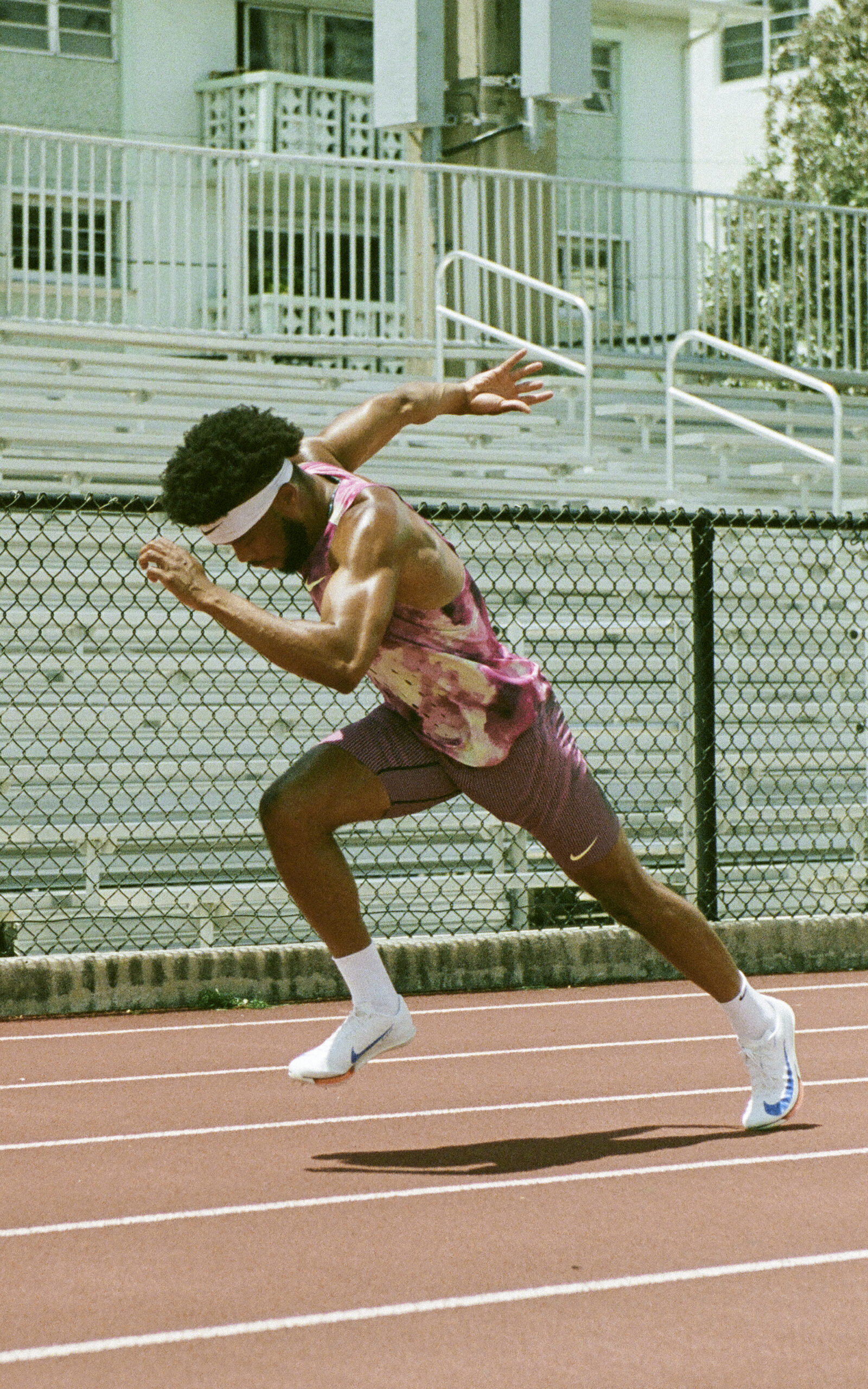
Tank Top, Shorts, Headband, Socks, and Shoes Nike. Necklace The Society Archive.
LEWIS: And Noah?
MALONE: For me, it would probably go back to high school. I lost most of my vision in eighth grade, and going into my freshman year, I wasn’t sure if I would be able to even keep running track, especially at the elite level I was at before. I was going to the Indiana School for the Blind full time, and they had a track team too, but it wasn’t as competitive as your normal public school. So Jim Self, the athletic director [of Hamilton Southeastern, Malone’s local high school] made a way for me to go to the blind school for half the day, and then my public school back at home for the other half. And I was able to run on the track team at my public school. That gave me the confidence that I can still run track and fit right in with everybody else, and still compete at a very high level. The belief he had in me, even though I was in the process of losing vision, I will never forget that.
LEWIS: You guys are so inspirational. Was there a moment when someone came up to you, whether it was a child or an adult, and said, “You changed my life”?
MALONE: I mean, 98 percent of people don’t know I have a visual impairment until either I tell them or they find out. But when people find out, they say, “You make it so easy, and you’re so inspiring,” and that’s always the nicest compliment you can get. Because I’m not running just to run, I’m running because I love it, and if I can inspire people along that journey as well, that makes it even better. There’s people who say, “My child, or sibling, or friend, has a visual impairment. And you inspired them to get into athletics. You inspire them to pick up a ball, or do something else.” That’s the one that means the most to me. That’s really the goal.
HATZ: That’s so cool, Noah. I love that.
MALONE: Thanks, B.
HATZ: For me, sometimes kids can be very mean. I got bullied growing up, and I know what that’s like for other kids. And out in public, I’ll see a little kid who’s got a prosthetic, and I’ll immediately walk over, even if I’m wearing pants, and say, “Hey, you’re just like me. Look, I have one, too.” And their parents always tell me, “Thank you for that. They always feel like the only ones.” When I was little, I definitely felt like the only one. I love that I can be a help and an advocate, even for people who are able-bodied. For example, when my cousin was 9, she had a project to make flags with some other kids for their little fun run, and their flags would represent something that they come from. So kids did Germany, or Britain, or whatever, and my little cousin, without anybody, did the Paralympic logo. All the kids were so confused. She had asked me to come to her run, and I saw her little flag for the first time and started crying. So you see the effect that you can have on everybody, and I hope I can continue to do that.
LEWIS: If you had one thing you could say to young people to inspire or support them, what would that be?
HATZ: Don’t let anyone tell you that you can’t.
MALONE: That’s a good one.
LEWIS: That’s great. What is the most memorable moment, athletically, that each of you has had? Noah?
MALONE: Hands down, the Tokyo Paralympic games, back in 2021. I was 19 at the time, and in the midst of COVID, it was really unpredictable. We were ready to compete, but we were also overwhelmed with all the rules and limitations. We couldn’t even go out and sightsee, so the mood was a little mellow at times, but we were just grateful to compete. I was running the 100, 400, and the relay, and I’ll admit, I was pretty nervous. I was not coming in as the favorite in any event, so just to medal would’ve been a great win for me. For the 100, I came away with a PR [personal record] and ended up getting silver. Once I was actually on the podium getting the medal, I was like, “This is amazing.” The medal was heavy, I was on cloud nine. And then the next day was the 400. Not my favorite event, but I ended up breaking the Paralympic record in the prelims, and ended up getting second, again. But the guy who won broke the world record, so it was a close race. So two silver medals, two PRs, and the people who got gold literally broke world records. To cap it off, it was the universal relay for Team USA. We broke the world record and got gold. That was an amazing feeling. Regardless of if there were fans or not, the energy was there. It doesn’t matter if there was one person or 80,000, you’ll feel it. To walk away at 19 with something like that was an amazing feeling. Hopefully three golds in Paris—not that the silver isn’t good.
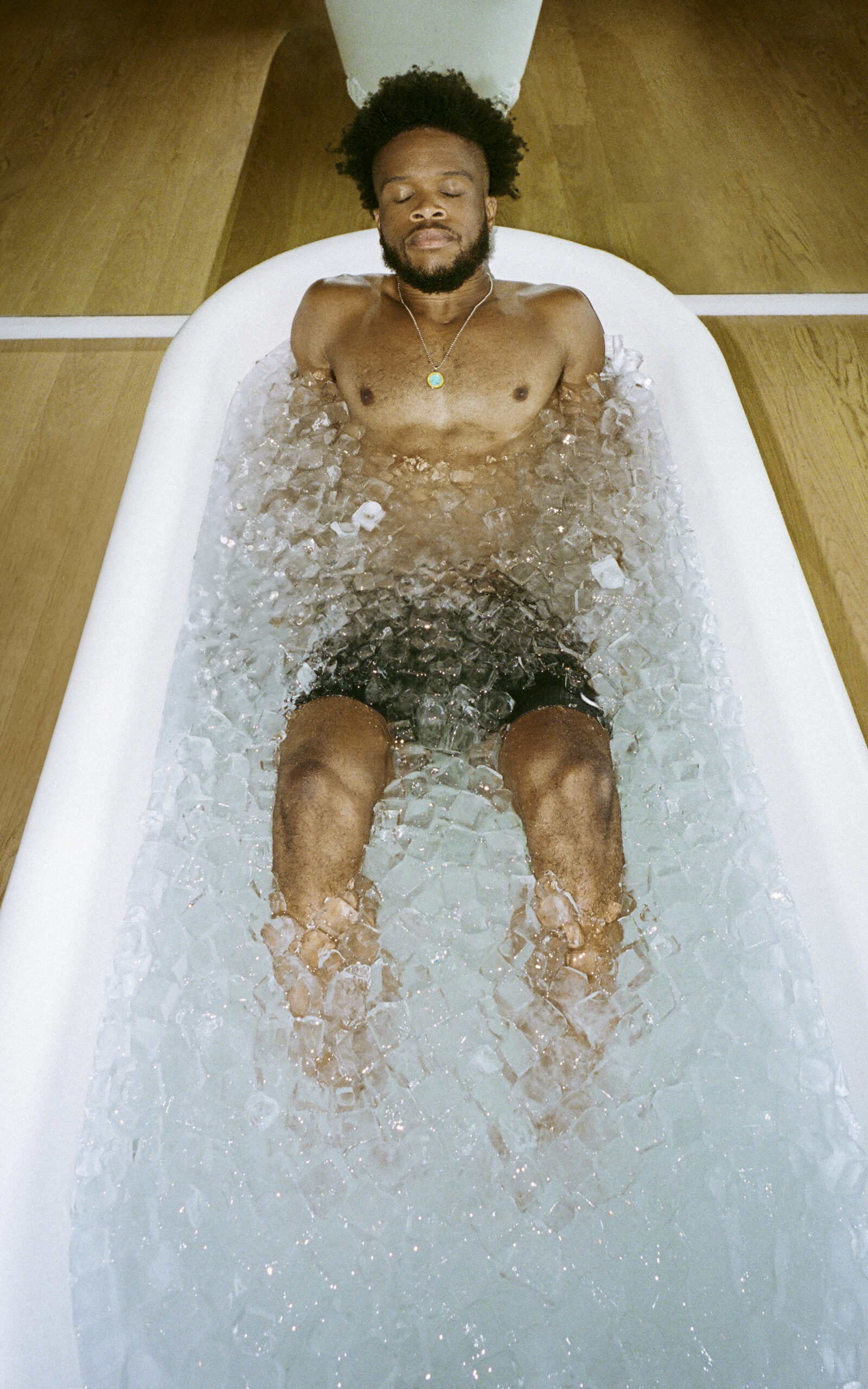
Shorts Nike. Necklace The Society Archive.
LEWIS: Yeah, you’re looking for a set, not the same one.
MALONE: Yeah. Different colors this time.
LEWIS: And Beatriz?
HATZ: A moment in my athletic career that was really special to me was when I had gone to my first Junior World Championships. It was back in 2017, I was 16 years old, and it was my first time traveling internationally, and first time being on Team USA for Para at all. It was, I think, my third Para track meet in my life. Luckily my family came to Nottwil, Switzerland, and I competed. I walked away with two golds and a silver. Looking back it’s not as big of a deal, but that moment will forever be special, because when you get that medal, they hand you the flowers and the national anthem is playing, and I look over in the stands and I see my dad crying because he was so proud, and I have never seen this man cry. I was like, “Oh my gosh, I have made my dad so proud,” and I can hope I can do that at a bigger stage. That was really special.
LEWIS: Wow. The Paralympics have added so much to the Olympic movement. It’s been incredible. And what you do is inspiring, both to people and just athletically. It’s not just a matter of Paralympic performances, these are world-class performances. So thank you two for being who you are. Paris is going to be a fabulous games, and I look forward to seeing you. We all do.
MALONE: Thank you Carl, I appreciate it.
HATZ: It was nice to see you again.
LEWIS: Your trials are next week?
HATZ: They’re this week. We’re actually in Florida right now, getting ready to compete out here. On Sunday they’re going to announce the team.
LEWIS: Oh my goodness gracious. I’m actually going to Paris as a college coach. I have two athletes on the team, and one athlete that’s finished, so I’ll be there as well, trying to root them on, and see what the heck we can do with them.
HATZ: That’s so exciting. You should extend your stay, to watch us.
LEWIS: One more question—what’s your toughest workout, Beatriz and Noah?
HATZ: This was before Noah joined the team, so I don’t know if Coach Mack made him do this workout. During offseason, for whatever reason—I don’t know what put this in this man’s mind—we would do a 300, and then you’d have a few minutes’ rest, then a 250, 200, 200, and then four 100s, with 90 seconds’ rest in-between the 100s.
LEWIS: I’m going to have a problem with that workout.
MALONE: I have not done that workout, by the way.
HATZ: It was rough.
MALONE: We can keep that in last year. Anything all-out will get to me. All-out 300, and then an allout 250 right after. Anything 400 training gets me.
LEWIS: Well, you don’t remember easy workouts, do you?
HATZ: No. [Laughs]
LEWIS: Coach Mack is making sure they giving you some more stories.
HATZ: Absolutely.
LEWIS: Good luck, everyone.
———
Hair: Heidi Evora-Santiago using Pattern Edge Control & Styling Gel at Intellectual Property Agency.
Makeup: Madeline Rouge using Shisheido.
Digital Technician: Javier Sanchez.
Photography Assistants: David Burns and David Friske.
Fashion Assistant: Izaake Zuckerman.
Production Assistants: Devaughn McGann and Michelle Riveron.
Postproduction: Helen Studios.
Location: The Standard Spa, Miami Beach.


